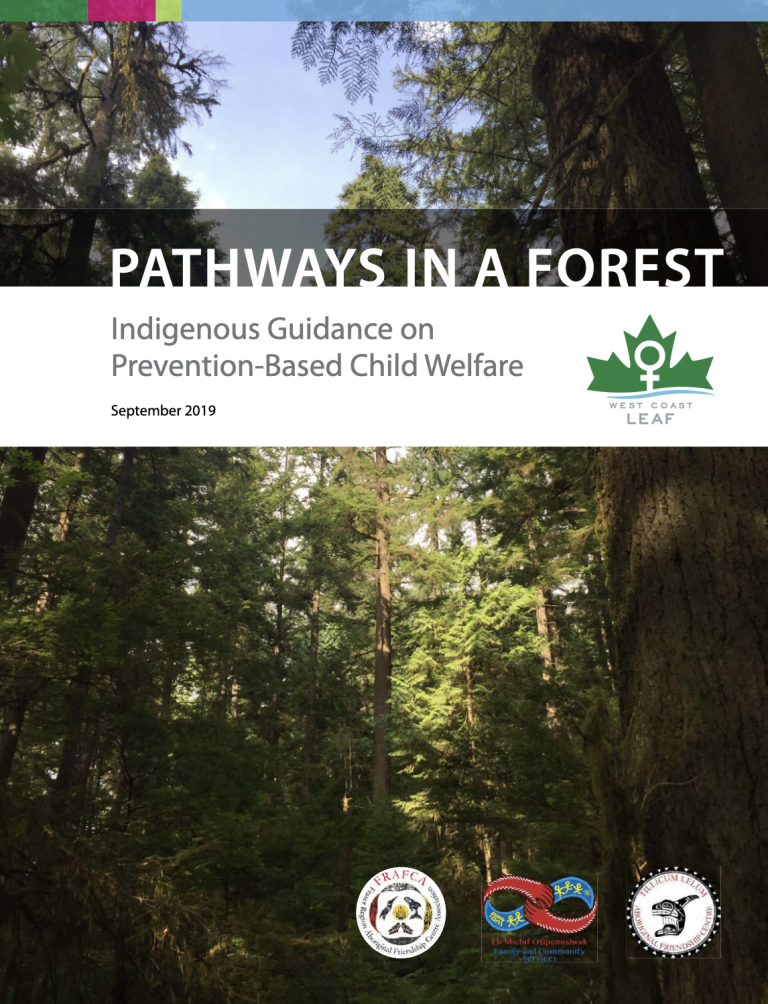32 search results
for
Government of British Columbia
Recommendations for legislative reform
Recommendation 11: Increase court oversight of MCFD’s efforts to identify less disruptive measures by adding the following provisions to the CFCSA:- The court shall not make an order removing the child from the care of a parent or guardian unless the court is satisfied that less disruptive measures, including services to promote the integrity of the family, have been attempted, refused by the parent or would be inadequate to protect the child;
- Where the court determines that it is necessary to remove the child from the care of a parent or guardian, the court shall, before making an order, consider whether it is possible to place the child with a person or group in accordance with the order of preference of placements.
-
Category and theme:
Audience:
Groups affected:
Recommendations for improving financial supports
Recommendation 12: The provincial government must immediately raise welfare and disability rates to the Market Basket Measure (MBM), index them to the cost of living, and remove arbitrary barriers.-
Category and theme:
Audience:
Groups affected:
Recommendations for improving financial supports
Recommendation 13: In the meantime, the BC government and MCFD should bridge the gap between the current welfare and disability rates and the MBM for all families that are at risk of having children apprehended by MCFD.-
Category and theme:
Audience:
Groups affected:
Recommendations for improving financial supports
Recommendation 14: The BC government should amend legislation to ensure that there is no reduction of benefits for families when a child is temporarily taken into care so that income supports and housing can be maintained while parents are working to bring their children home.-
Category and theme:
Audience:
Groups affected:
Recommendations for improving financial supports
Recommendation 15: MCFD should develop a policy for supporting each family with whom it comes into contact to secure all the available provincial and federal benets. This may require training social workers to understand social assistance frameworks or creating a position within MCFD for a social assistance support worker that can help families secure all the benefits to which they are entitled.-
Category and theme:
Audience:
Groups affected:
Recommendations for improving financial supports
Recommendation 16: MCFD should develop a plain-language fact sheet for kinship caregivers that sets out the pathways available to them under the CFCSA and FLA. Social workers must be required to provide this information sheet to all caregivers that could qualify for the EFP.-
Category and theme:
Audience:
Groups affected:
Recommendations for improving financial supports
Recommendation 17: MCFD must advocate with the provincial government for the creation of a universal kinship caregiver benefit that is provided to all families in kinship care. This should apply to all children living in kinship care including families in which kinship caregivers have been granted guardianship orders under the FLA.-
Category and theme:
Audience:
Groups affected:
Recommendations for improving financial supports
Recommendation 18: MCFD should undertake a legislative review and financial policy review to ensure that all kinship caregivers are receiving the Child Tax Benefit and other benefits for each dependent in their care.-
Category and theme:
Audience:
Groups affected:
Recommendations for improving prevention-based efforts
Recommendation 19: The BC government and MCFD should increase preventative program funding to Indigenous communities for existing or new promising practices. Funding must be equitable, sustained and long-term, and cover the delivery of holistic services as identified by communities. Funding should cover services such as:- Human resource needs of community-based groups including issues with retention, burn out, inequity in pay scales etc.
- In-home support
- Pregnancy support and baby welcoming programs
- Transition support programming for families after children have been removed or upon being returned home
- Supports for parents whose children are in care
- Provide in-home support immediately as a tool to prevent removal
- Funding for cultural programming that is consistent and frequent
-
Category and theme:
Audience:
Groups affected:
Recommendations for improving prevention-based efforts
Recommendation 20: The BC government and MCFD must fund and resource supportive housing alternatives where parents and children who are at risk of harm can live. These homes should be specifically qualified to address complex family circumstances. Creative housing solutions where caregivers and children can stay together while receiving wrap-around support are especially needed in remote areas.-
Category and theme:
Audience:
Groups affected:
